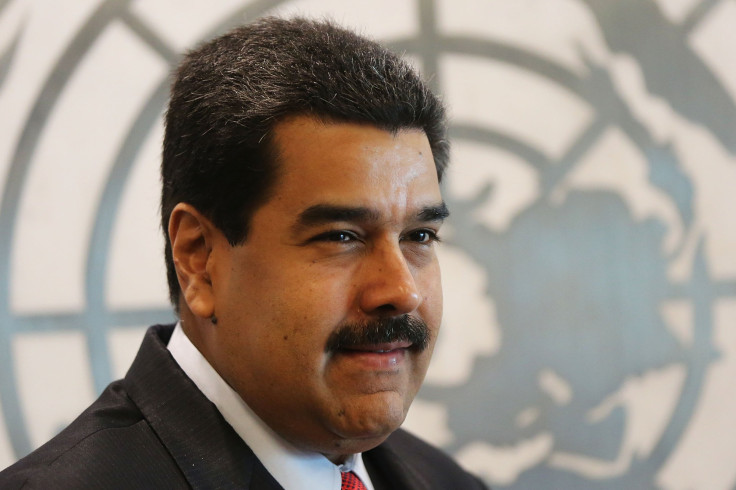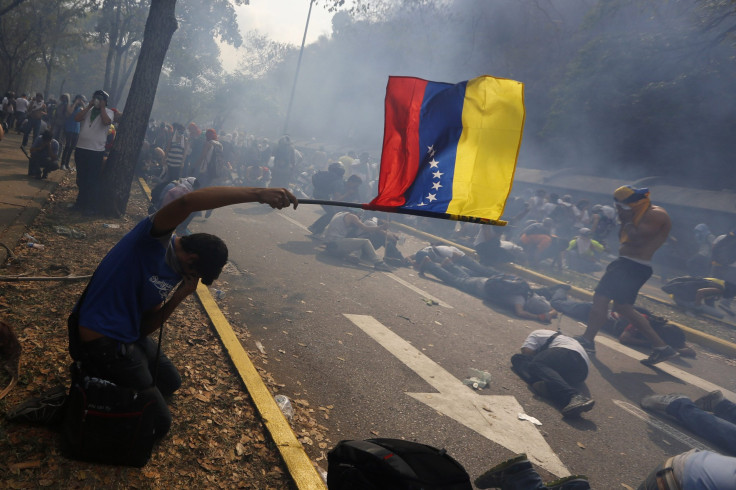Venezuelan President Announces Plans To Make "Petro" Cryptocurrency

During a televised broadcast on Sunday, Venezuelan President Nicolas Maduro announced the oil-rich country will create a national cryptocurrency backed by oil, gas, gold and diamond reserves.
Reuters reported Maduro said this petro token will “advance in issues of monetary sovereignty, to make financial transactions and overcome the financial blockade.” Opposition leaders countered by arguing such a decision would require congressional approval. “It’s Maduro being a clown. This has no credibility,” opposition lawmaker Angel Alvarado told Reuters. It’s hard to say how, or when, the Venezuelan government could create this cryptocurrency since the nation is currently embroiled an economic crisis as the fiat bolívar continues to freefall.
Venezuelans are already flocking to cryptocurrencies such as bitcoin and zcash. According to the global map of live bitcoin nodes maintained by bitnodes.earn.com, there are at least four bitcoin network nodes operating in Venezuela. The Atlantic reported thousands more Venezuelans are mining cryptocurrency as inflation makes it increasingly difficult for locals to afford necessities like food, medicine and diapers. "You can feed a family with one ether rig,” exiled bitcoin miner David Fernando Lopez told CNBC.
The Venezuelan bolívar is now one of the world’s most volatile currencies. The New York Times reported inflation was up 800 percent in October and is expected to rise more than 2,300 percent in 2018. The 2016 Venezuela Living Conditions Survey reportedly found 81 percent of Venezuelan households were living in income poverty. Meanwhile, the anonymous cryptocurrency zcash is in such high demand that the Zcash Foundation published a Spanish-language guide for new Venezuelan zcash users.

Many cryptocurrency miners have been blackmailed by police or arrested for crimes such as “energy theft.” On the other hand, the growing blockchain community isn’t strictly operating underground. Cryptocurrency advocates spoke at a fintech event in November that included representatives from the Ministry of Popular Power for University Education, Science and Technology. Blockchain developer John Villar reportedly mentioned zcash and the cryptocurrency dash, saying privacy is important for security reasons, during a panel moderated by vice minister Camilo Torres of the Development of Information and Communication Technologies.
Even if the Venezuelan government managed to create a stable, asset-backed cryptocurrency in a timely fashion, it’s hard to imagine the digital token would live up to Maduro’s claim it would help “overcome the financial blockade.”

Back in 2012, Bloomberg reported some Iranian businessmen were able to circumnavigate political sanctions by using bitcoin for transactions such as receiving investments from a Swedish firm. However, this was before the blockchain boom increased government awareness of bitcoin activity. Plus, the reason bitcoin worked for Iranians was because it is a decentralized, global currency. A centralized national currency would create far more challenges when it comes to the economic sanctions against Venezuela.
Regardless, Maduro’s office declared the Venezuelan government will establish a Blockchain Observatory to create "an institutional, political and legal base" for launching the petro cryptocurrency. Economist Jean Paul Leidenz tweeted warnings such a plan could end up exacerbating, not reducing, hyperinflation in the end.
© Copyright IBTimes 2024. All rights reserved.




















